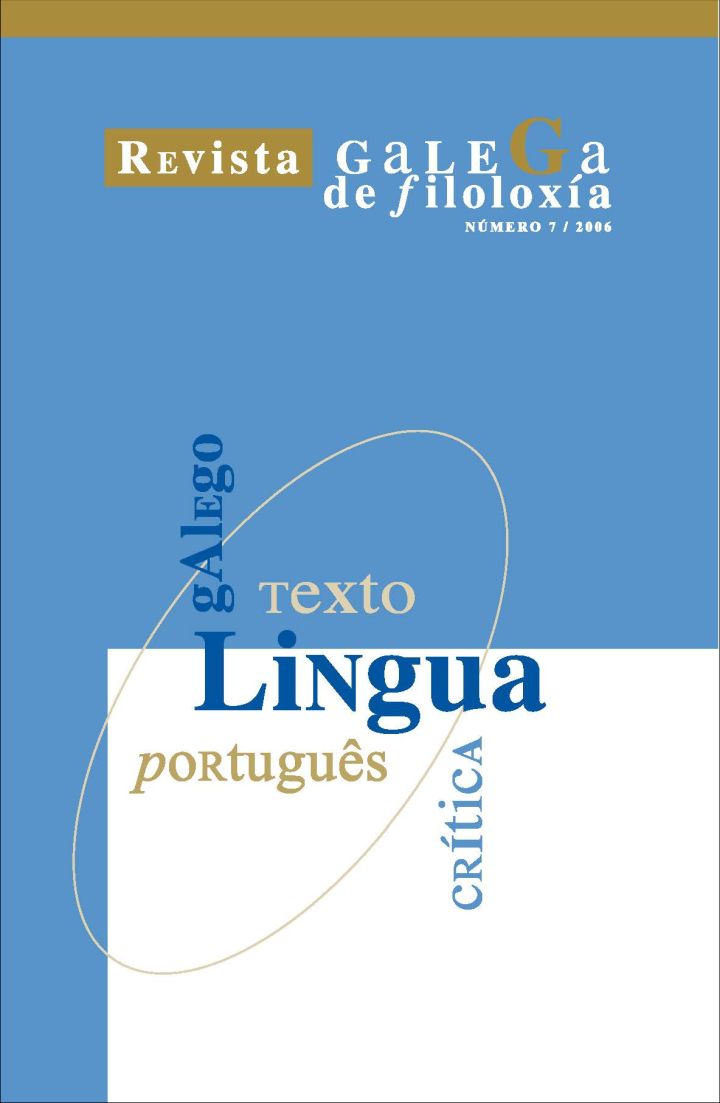An analysis of non-argument datives
Main Article Content
Abstract
We come across a lot ofdifficulties when we try to define, to delimit and to classify the socalled "non-argumentative dative prononus". These are those sentence elements that do not belong to the actantial verbal scheme because they are not compulsorily required by this. However, they play an important role within the configuration ofa text.lts formal similarity with the traditionally called "indirect complement or object" led to misunderstanding or inaccurate interpretations. They are normally based on semantic criteria bringing about typologies conditioned by the referential context rather than by formal fea tures of these dative prononus. Our intention in this briefarticle is to give account ofthe characterization and classification ofnon- argumentative dative pronouns. We will try to do it as objectively as possible from a lingüistic point of view.
Keywords:
Downloads
Metrics
Article Details
References
Alcina Franch, J. / Blecua, J. M. (1975): Gramática española (Barcelona: Ariel).
Álvarez, R. / Regueira X. L. / Monteagudo H. (1986): Gramática galega (Vigo: Galaxia).
Álvarez, R. (1997): "O complemento de solidariedade: a complicidade entre os interlocutores", en Actas do IV congreso internacional de estudios galegos: 37-53 (Oxford: Centro de Estudios Galegos).
Álvarez, R. / Xove, X. (2002): Gramática da lingua galega (Vigo: Galaxia).
Freixeiro Mato, X.R. (2000): Gramática da lingua galega. Vol. II. (Vigo: A Nosa Terra).
Figueiredo Silva, M. C. (1994): "Clíticos em galego: uma discussão dentro do quadro da teoria de regência e vinculação", en Lorenzo, R., Actas do XIX Congreso Internacional de Lingüística e Filoloxía Románicas. Tomo VI: 267-275 (A Coruña: Fundación Pedro Barrié de la Maza, Conde de Fenosa).
Gutiérrez Ordóñez, S. (1997): La oración y sus funciones (Madrid: Arco Libros).
Herslund, M. (1988): Le Datif en Français (París: Peeters).
Longa, V. M. / Lorenzo, G. (2001): "Universal constraints on 'superfluous' elements: The case of Galician 'Arb Che", en Gutiérrez-Rexach, J. / Silva-Villar, L., Current Issues in Spanish Syntax and Semantics: 175-191 (Berlín / Nova lorque: Mouton de Gruyter).
Maldonado, R. (1998): "Datividad y distancia conceptual" en Cifuentes Honrubia, J. L. (ed.), Estudios de lingüística cognitiva. Vol. 11: 687-705 (Alicante: Universidade de Alicante).
Porto Dapena, J. A. (1992): Complementos argumentales del verbo: directo, indirecto, suplemento y agente (Madrid: Arco Libros).
Saco Arce, J. A. (1868): Gramática gallega (Lugo: Soto Freire).
Silva Domínguez, C. (1996): "A posesión inalienable: artigo, dativo, posesivo", en Lorenzo, R. / Álvarez, R. (coords.), Homenaxe á profesora Pilar Vázquez Cuesta: 241-263 (Santiago de Compostela: Universidade de Santiago de Compostela).
Vázquez Rozas, V. (1995): El complemento indirecto en español (Santiago de Compostela: Universidade de Santiago de Compostela).
Vilela, M. (1992): Gramática de valências: teoria e aplicação (Coimbra: Livraria Almedina).


